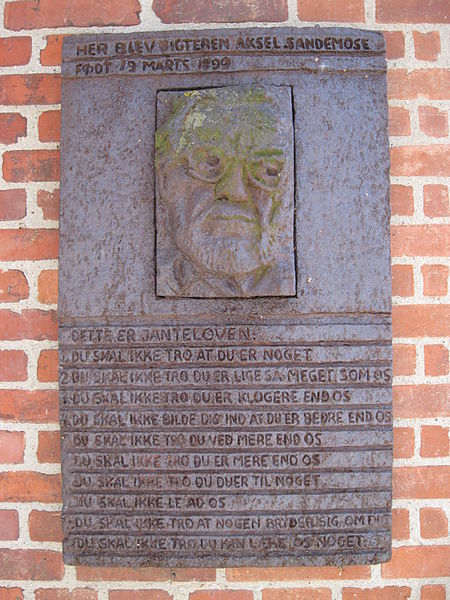Jantelov
Jantelov or the Law of Jante refers to a disdainful attitude to extraordinary achievements and is often mockingly used to exemplify unflattering aspects of the alleged Nordic trait of placing the value of equality above all else.

Introduced by the Danish–Norwegian author Aksel Sandemose in his 1933 novel En flyktning krysser sitt spor (A Fugitive Crosses His Tracks, 1936), which takes its setting from the fictional Danish village Jante, the ‘Law of Jante’ consists of ten commandments in loose analogy with the Bible. Each commandment signifies one aspect of the stifling conformity and ideology of equality dominating in Jante. Two typical commandments are:
§1 – “You shall not believe that you are somebody!” (Du skal ikke tro at du er noget!); and,
§10 – “You shall not believe that you can teach us anything!” (Du skal ikke tro, at du kan lære os noget!).
The term jantelov (jantelag in Swedish) has entered the everyday language of Denmark, Norway and Sweden, where it refers to a mean and disdainful attitude to extraordinary achievements. It is often suggested that the jantelov reveals an unflattering aspect of the Scandinavian value of equality. It can nevertheless be argued that similar attitudes towards nonconformists are widespread in most small communities worldwide.
Further reading:
- Aksel Sandemose, En flyktning krysser sitt spor (Oslo: Aschehoug, 1933)
- Cornelius Cappelen and Stefan Dahlberg, 'The law of Jante and generalized trust', Acta Sociologica, 6, 4 (2017), pp. 419-440